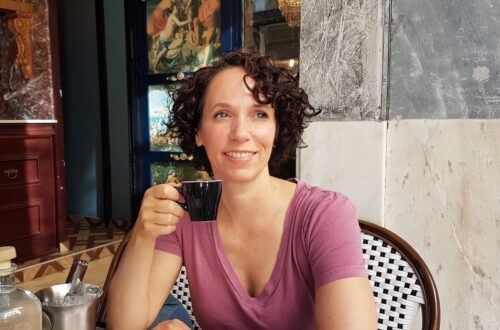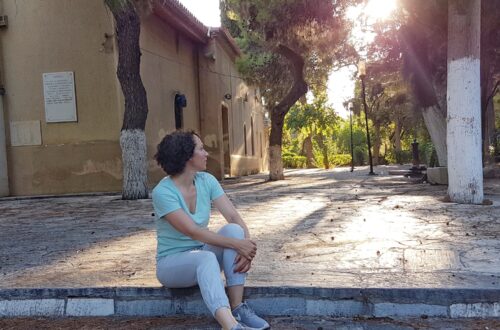
How To Become Financially Independent In Your 40s Or Earlier
Our Strategies for Retiring Early
It took a lot of years of saving and investing to get to where we are today: Free to quit our corporate jobs and travel the world, ticking off our bucket list as we go. Just six months ago we were locked into the typical 9am to 5pm, Monday to Friday corporate schedule (plus evenings and weekends as needed). Fortunately, we had been quietly working towards our financial goals so we were finally able to say goodbye to sitting behind a desk and head out on the road to explore a more fulfilling way to live.
Today we’re sharing the five strategies that helped us achieve a state of financial independence, where the returns on our investments are enough to cover our expenses on an ongoing basis. These strategies are not unusual or difficult to achieve. In fact, we feel that, on the whole, they are quite basic and accessible to most people living in a stable economy with access to education and employment.
For us, these are strategies that enabled us to retire decades ahead of the traditional age, leaving us free to pursue our passions without the need for a salaried job.
An important point to make first: All of the wealth we have today was built as salaried employees. We didn’t have an inheritance, win the lottery or own a multi-million dollar business. For us this means that financial independence and early retirement are very achievable to people with average salaries. You just need to have a level of disciple and the vision to get there.
Develop a savings habit
We both started saving money from an early age. As soon as I got my first job after university in my early 20s, I opened a tax sheltered account and implemented an automatic $100 monthly deposit from my tiny paychecks. Although $100 a month was a lot to me at the time, it added up very slowly over the years. Still, what’s important was that I developed the habit of saving a portion of my income each month. Eventually that portion grew until I eventually achieved the surprisingly high post-tax savings rate of 70% in the year prior to retiring early.
However, for me, Gillian’s story of an early savings habit is much more impressive. At age 16, she took a job as a lifeguard, getting paid $6.15 an hour. Her meagre salary was hard won; she needed to take an hour-long bus ride to get to work. After such a lengthy commute, when she received her first paycheck, she knew immediately that she didn’t want to fritter it away on whatever a 16-year-old would normally buy. Instead, she began a routine of tucking her money away into savings. In fact, that lifeguarding money is likely still a part of our wealth today.
Avoid debt
We are both quite committed to avoiding debt wherever possible. This is always challenging in the early part of life that is characterised by accumulation, whether the accumulation of consumer goods when setting up an independence household or of knowledge and skills when going to school.
Looking at consumer goods, we have always avoided credit card debt, meaning that we never purchase more than we can afford to pay for when the next statement comes in. When it came time to buy a car, Gillian picked a basic used model and paid in cash (that savings habit came into good use).
For university, Gillian went an unconventional route in the eyes of her high school peers and opted to go to Canada’s Royal Military College on a full scholarship. She received a free education, free room and board and had a 5-year job contract upon graduation. Of course, this option isn’t for everyone, but the opportunity to serve her country held appeal for Gillian after her time in the military reserves during high school. Plus she was able to graduate debt-free.
Grow your income
In addition to being good savers and avoiding debt, we have both tried to grow our incomes by growing our careers. We sought out high demand niches in our respective fields and constantly retooled our skills to ensure relevancy in changing job markets.
For Gillian, this started with choosing to study business administration as her major during university. The topic wasn’t her passion but she did see it as a practical choice with broad application. Eventually she chose to work within the healthcare industry, which makes up a large part of the economy and offers a wide variety of career options.
Similarly, I chose to pursue growth niches within marketing and supplemented my career with industry writing and speaking engagements. None of these activities directly resulted in a promotion or raise but they all helped me become more confident during my job searches and contract negotiations.
Of course, the big turning point for our career growth and our income growth was when we moved from Canada to Singapore in 2013. I had always wanted a more international career and finally decided the time was right to pursue it. Note that we moved to Singapore entirely on our own; we were not relocated by a company into a cushy expat gig. Instead, we built professional networks in Singapore from the ground up and kept doing informational interviews until we were both offered jobs.
Moving to Singapore enabled us to take advantage of a more dynamic job market than what was available in Canada, along with higher salaries and a significantly lower tax rate. All of these elements combined to supercharge our savings and enable us to get to financial independence much faster than if we were still in Canada.
Not everyone is in a position to move their lives and careers to a new country. However, it’s still possible to move within a country or region to take advantage of higher salaries or lower taxes or even a lower cost of living. Being flexible about where and how you live during prime earning years can have a significant impact on financial goals.
Leverage benefits
We’ve made it a standard operating practice to understand all the benefits we may be eligible for — whether as employees or tax residents or even as a military veteran — and to make use of them.
Every job comes with a package of benefits, many of which may go unused by a typical employee. We both scour our job contracts and the company intranet of every employer to understand the full range of benefits available, whether for additional training or health care or additional time off. Similarly, each tax return comes with opportunities for reasonable deductions, whether it’s a home office expense or medical costs. And, of course, every dollar that we saved is another dollar to invest.
Which brings us to the final strategy, which is…
Invest the difference
To reach financial independence, it’s not enough just to save money. That money needs to be working hard as an investment, not just sitting around as cash in the bank.
After many years of refinement, we have an investment strategy that is appropriate to us and our circumstances. Of course, we maxed out our tax sheltered accounts while we were still living in Canada. We also own a non-tax sheltered slice of the global market through low-cost index investing. Finally, we have fixed income investments in the form of syndicated mortgages, which funds our everyday living during early retirement. Again, this is a combination of investments that are right for our risk appetite and our living expenses during this stage of our early retirement.
These are the five simple strategies that have helped us build our wealth over time: build a savings habit, avoid debt, grow your income, leverage benefits and invest the difference. While we joke that these are the secrets that enabled us to retire early, in truth these are basic requirements of financial management which are accessible to most people. Just a little discipline and hard work required.
If you’re interested in financial independence and early retirement, click here to subscribe to our YouTube channel.





5 Comments
Pingback:
Pingback:
Pingback:
Michael
Hi OFY,
do you take advantage of non resident status (seeing you are mostly overseas) to invest via the Singapore or Hong Kong stock markets … where there is no Capital Gains Tax …. rather than Canada where there is Capital Gains Tax … any thoughts on this?
CPO China
Our Freedom Years
Hi Michael, thanks for your question. We became non-residents of Canada when we moved to Singapore, which has provided us with some great tax benefits over the years. Our brokerage account is with Interactive Brokers and we buy a Vanguard fund (VWRD) that benchmarks itself against the FTSE All World Index. That particular fund is a good option for anyone who lives in a country doesn’t have a tax treaty with the US, as was the case for us when living in Singapore, since it is domiciled in Ireland which DOES have a tax treaty with the US.
We actually have a post that goes into some further detail on our equity investments – you can find it here:
https://ourfreedomyears.com/how-we-invest-in-the-stock-market-for-financial-independence/